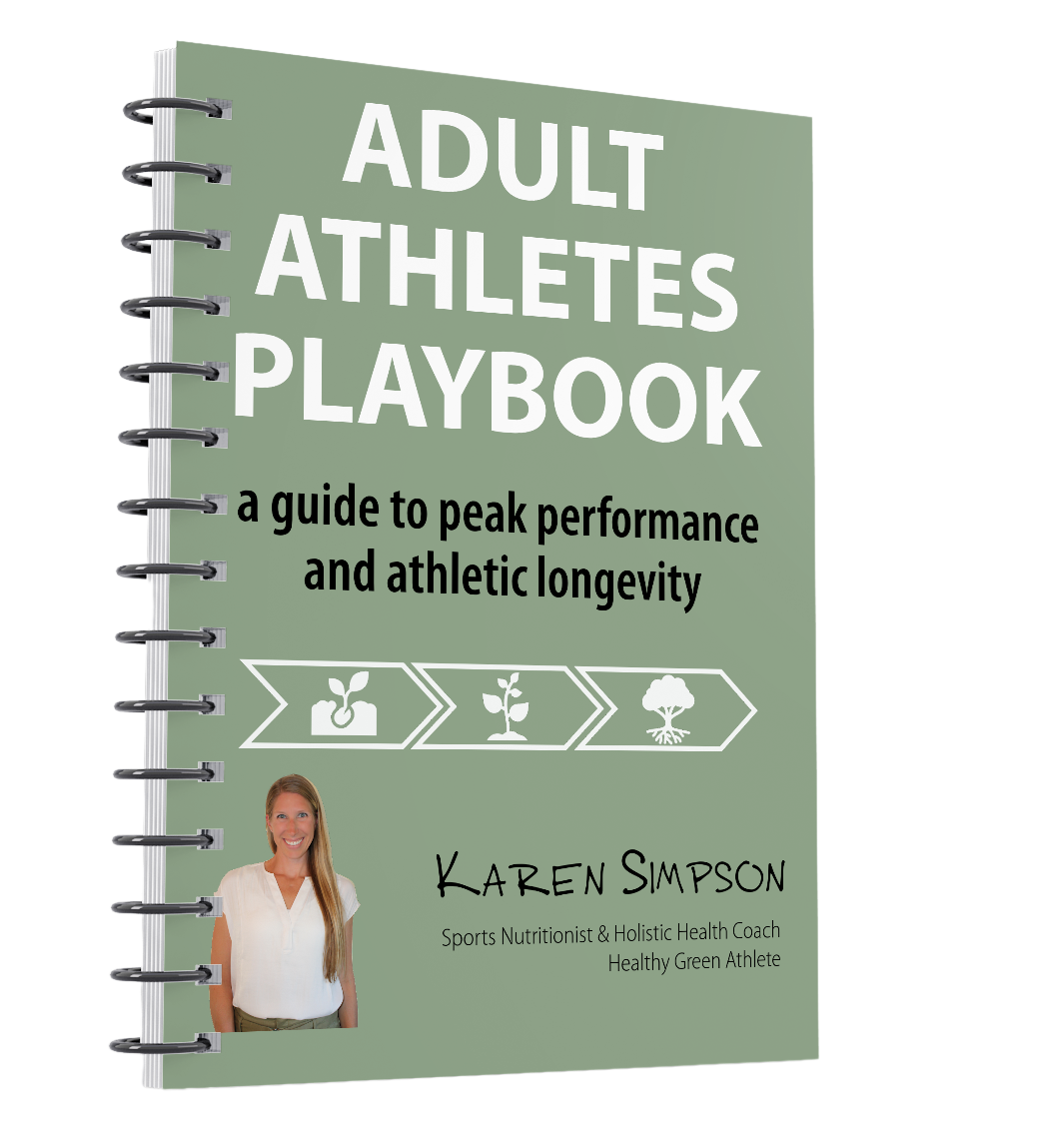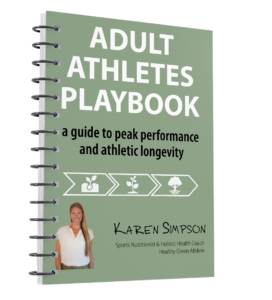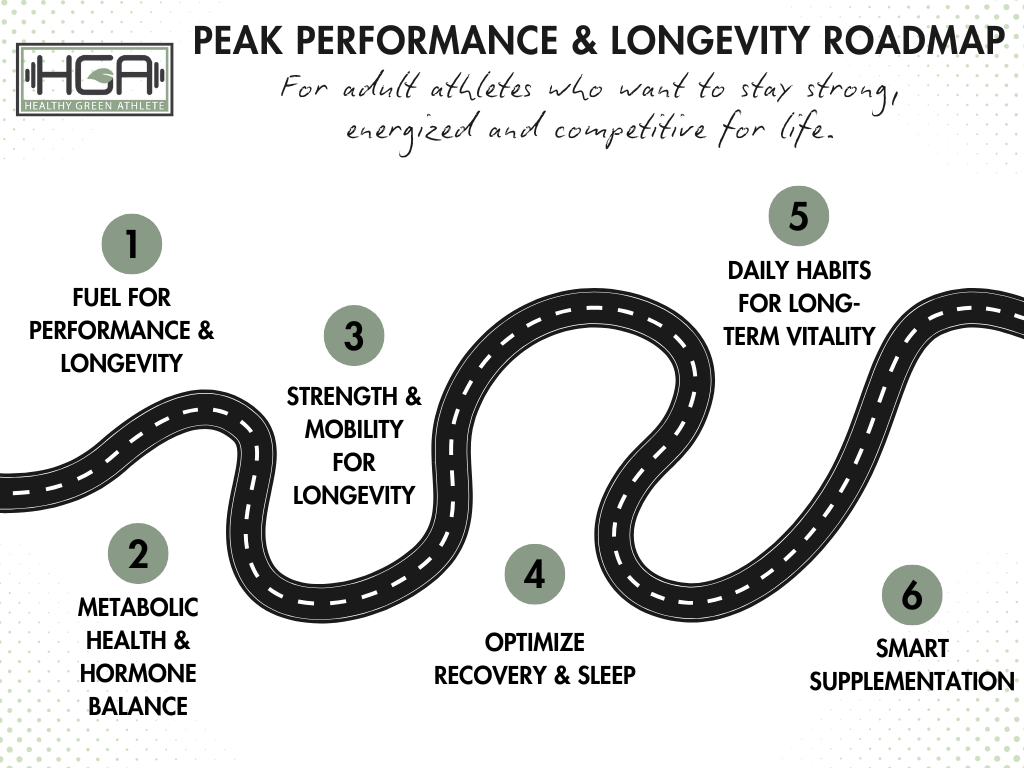Read time: 8 minutes, 30 seconds
Endurance athletes engage in prolonged activities that challenge cardiovascular endurance and stamina, such as running, cycling, swimming, and triathlons. Typically, these sports require athletes to endure an activity for hours at a time. And the primary goal is to sustain effort over this extended period of time. This makes their training and nutritional requirements significantly different than other athletes.
Understanding Endurance Athletes
Endurance activities use the aerobic energy system to sustain prolonged physical effort. This system relies on oxygen to break down carbohydrates and fats for energy. During low to moderate-intensity activities, such as jogging or cycling at a steady pace, the body predominantly relies on aerobic metabolism to produce adenosine triphosphate (ATP). ATP is the energy currency of all cells in the body. This system is very efficient and provides a steady supply of energy for extended periods. But that assumes there’s enough fuel provided to sustain the activity, and that the athlete has excellent physical fitness. The aerobic system’s reliance on oxygen allows the body to maintain endurance efforts for long durations. This makes it essential for activities like long-distance running, swimming, and cycling.
Further Read: 8 Secrets to Improving Endurance in any Athletic Activity
As the intensity of endurance activities increases, the body utilizes a different energy system. These activities engage the anaerobic energy system in conjunction with the aerobic system. This process produces energy more rapidly than aerobic metabolism but leads to the accumulation of lactate, resulting in the familiar sensation of muscle fatigue and “burn”. The lactate threshold is a critical factor in determining performance during endurance exercises. This is the point where lactate production exceeds its removal. Once the body passes this threshold, lactate accumulates in the bloodstream and leads to an imbalance in pH levels. This condition, known as lactic acidosis, can result in a burning sensation in the muscles, and fatigue. And ultimately reduces exercise performance or leads to inability to perform altogether.
Proper training and gradual increases in exercise intensity can help endurance athletes improve their lactate threshold. By carefully managing pacing and training endurance athletes can improve their lactate threshold. This enhances performance in races or events that demand sustained effort at high intensities.
Further Read: Fuel Your Performance: 4 Essential Eating Habits for Adult Athletes
Nutrition also plays a big role in the success of an endurance athlete. In this blog post, I outline the importance of macronutrients, micronutrients, and hydration for endurance athletes.
Carbohydrates and Endurance Athletes
Carbohydrates play a vital role in fueling endurance athletes during prolonged activities. As the primary energy source for aerobic metabolism, carbohydrates are converted into glucose, which is then used to produce ATP, providing the energy needed for muscle contractions. During endurance exercises like long-distance running, cycling, or swimming, the body relies heavily on stored glycogen (the stored form of carbohydrates) in the muscles and liver to sustain energy levels. Consuming an adequate amount of carbohydrates before, during, and after activity is crucial for optimizing performance, delaying fatigue, and promoting efficient recovery.
Also Read: 7 Natural Supplements that Boost Post-Workout Recovery
Before activity, endurance athletes should aim to consume a carbohydrate-rich meal or snack to top up their glycogen stores. The timing and amount of carbohydrates depend on individual preferences and digestion. A balanced meal with complex carbohydrates like whole grains, fruits, and vegetables, consumed 2-4 hours before the activity, provides a steady source of energy. For those who have less time before exercise, a smaller carbohydrate-rich snack, like a banana or energy bar, consumed 30-60 minutes prior, can also be beneficial.
Also Read: Why Carbohydrates Matter in Sports Nutrition
During endurance activity lasting longer than one hour, consuming carbohydrates is essential to maintain energy levels and delay fatigue. Aim for 30-60 grams of carbohydrates per hour, depending on the duration and intensity of the activity. This can be achieved through energy gels, sports drinks, or easily digestible carbohydrate-rich snacks like energy bars or dried fruits.
Also Read: The Carbohydrate Conundrum: The Truth About Good and Bad Carbs
After activity, replenishing glycogen stores is crucial for efficient recovery. Consuming carbohydrates within the first 30-60 minutes after exercise is particularly important, as the body’s glycogen synthesis rate is higher during this period. Aim for 1.2 grams of carbohydrates per kilogram of body weight within this window. A mix of carbohydrates and protein can also aid in muscle recovery and repair, supporting an athlete’s readiness for subsequent training sessions or competitions.
Protein and Endurance Athletes
Protein is essential for endurance athletes to support muscle repair, recovery, and overall performance. During long-duration activities, the body undergoes muscle breakdown and protein degradation due to the repetitive and prolonged nature of the exercise. Consuming an adequate amount of protein is crucial to prevent excessive muscle damage and promote optimal recovery. Protein provides the necessary amino acids that are building blocks for muscle repair and growth, helping endurance athletes bounce back faster and adapt to the demands of their training.
Also Read: Unleash the Beast with the Power of Protein
Before endurance activity, consuming protein is not a primary concern as the main focus is on carbohydrates to provide the necessary energy for sustained performance. However, having a small amount of protein along with carbohydrates before exercise can help provide a steady supply of amino acids during activity and may aid in preventing muscle breakdown.
During endurance activity, protein intake is not typically a priority as the primary focus is on carbohydrate and hydration needs. Protein digestion may be slower and may not be as practical during exercise, especially in longer events or activities. Instead, the emphasis is on consuming easily digestible carbohydrates to maintain energy levels and support performance.
Further Read: 3 Must-have Protein Supplements and Why?
After endurance activity, protein intake becomes crucial to support muscle recovery and adaptation. Consuming protein within the first hour after exercise is essential to maximize the body’s ability to repair and rebuild muscle tissue. Aim for approximately 20-30 grams of high-quality protein from sources like lean meats, dairy products, eggs, or plant-based options like legumes and tofu. Combining protein with carbohydrates in a 3:1 or 4:1 ratio can also aid in glycogen replenishment and enhance recovery.
Also Read: 10 Backed by Science Healing Foods to Enhance Recovery
The recommended daily protein intake for endurance athletes is typically between 1.2 to 2.2 grams per kilogram of body weight, depending on factors such as training volume, intensity, and individual goals. Proper protein intake, along with a balanced diet rich in carbohydrates, fats, and micronutrients, helps endurance athletes optimize their training, performance, and recovery, leading to improved overall athletic success.
Dietary Fat and Endurance Athletes
Dietary fat plays a critical role in supporting endurance athletes’ performance, energy utilization, and overall health. During prolonged endurance activities, the body relies on stored fat as a significant source of energy, especially as glycogen stores begin to deplete. Fats are broken down into fatty acids and then oxidized to produce adenosine triphosphate (ATP), providing a continuous and sustainable source of energy for endurance efforts. By training the body to become more efficient at utilizing fat for fuel, endurance athletes can delay the onset of fatigue and improve their performance during long-distance events. Additionally, dietary fats aid in the absorption of fat-soluble vitamins (A, D, E, and K) and play a crucial role in supporting various physiological functions, including hormone production, cell membrane integrity, and nervous system health.
Also Read: Embracing Healthy Fats for Optimal Athletic Performance
Endurance athletes should focus on consuming healthy fats to optimize their performance and overall well-being. Incorporating sources of unsaturated fats, such as avocados, nuts, seeds, and olive oil, provides essential fatty acids and supports cardiovascular health. Omega-3 fatty acids, found in fatty fish like salmon and chia seeds, possess anti-inflammatory properties, potentially aiding in recovery and reducing exercise-induced muscle damage. While fats are a valuable energy source, it is essential for endurance athletes to balance their fat intake with carbohydrates and protein to ensure they meet all their nutritional requirements. Striking the right macronutrient balance helps endurance athletes maintain their energy levels, enhance their performance, and support their body’s demands during prolonged training and racing.
Also Read: The DOs and DON’Ts of a Fat Adapted Diet for Athletes
Micronutrients and Endurance Athletes
Micronutrients play a crucial role in supporting the performance and overall health of endurance athletes. Vitamins and minerals are essential for various physiological functions that impact energy production, immune function, and recovery. B vitamins, such as B1 (thiamine), B2 (riboflavin), B3 (niacin), B6, and B12, are involved in energy metabolism, helping convert carbohydrates, fats, and proteins into usable energy during endurance activities. Iron is critical for oxygen transport in the blood, and its deficiency can lead to decreased endurance performance and fatigue. Additionally, minerals like calcium and magnesium support muscle function and bone health, both essential for endurance athletes to prevent injuries and maintain strength and flexibility.
Also Read: The Vital Role of Micronutrients in Athletic Performance
Phytonutrients also play a significant role in supporting endurance athletes’ health and performance. Antioxidant-rich phytonutrients, such as vitamin C, vitamin E, and flavonoids, help combat oxidative stress caused by intense exercise. Oxidative stress can lead to muscle damage and inflammation, so consuming a diet rich in fruits, vegetables, and plant-based foods provides a natural defense against these harmful effects. Additionally, phytonutrients like quercetin and resveratrol have been studied for their potential to enhance endurance performance and recovery. By including a wide variety of colorful fruits and vegetables in their diet, endurance athletes can ensure they receive an array of beneficial phytonutrients to support their training and overall health. Overall, paying attention to micronutrient intake through a balanced and diverse diet is crucial for endurance athletes to optimize their training, performance, and well-being.
Also Read: Training and Nutrition for Different Types of Athletes
Hydration and Endurance Athletes
Hydration is of paramount importance for endurance athletes as they engage in prolonged physical activities that lead to significant fluid loss through sweat. Proper hydration ensures optimal performance, endurance, and overall well-being. Dehydration can result in reduced blood volume, impaired thermoregulation, and increased heart rate, which negatively impact an athlete’s ability to maintain intensity and performance during long-duration activities. Endurance athletes should start their training or competition well-hydrated and continue to drink fluids at regular intervals to offset fluid losses. The American College of Sports Medicine recommends drinking about 16-20 fluid ounces (approximately 500-600 milliliters) of water two to three hours before exercise and another 7-10 fluid ounces (200-300 milliliters) of water 10-20 minutes before starting the activity. For extended endurance activities lasting longer than one hour, consuming fluids containing carbohydrates and electrolytes can help maintain blood glucose levels and prevent dehydration.
Also Read: 5 Strategies for Achieving Daily Water Intake Goals
During endurance activities, it is crucial for athletes to continue hydrating to replace lost fluids and maintain optimal performance. The goal is to prevent excessive fluid loss, which can lead to dehydration and impair performance. The rate of fluid consumption depends on individual sweat rates, exercise intensity, and environmental conditions. Generally, consuming 7-10 fluid ounces (200-300 milliliters) of fluids every 10-20 minutes during exercise is recommended. For activities lasting longer than one hour, consuming fluids containing carbohydrates and electrolytes can help sustain energy levels and support hydration. After endurance activities, prompt rehydration is vital for optimal recovery.
Also Read: Hydrating for Health, Anti-Aging and Performance
Athletes should aim to replace any fluid losses by consuming 16-24 fluid ounces (approximately 500-750 milliliters) of fluid for every pound of body weight lost during exercise. Including some sodium in post-exercise fluids can aid in rehydration by enhancing fluid retention and promoting fluid balance. By prioritizing proper hydration before, during, and after endurance activities, athletes can maintain their performance, reduce the risk of dehydration-related issues, and support their body’s recovery processes. If you are interested in some simple foods for hydration then check out this recipe:
Also Read: [RECIPE] Tart Cherry Jello for Hydration and Recovery
In summary...
Nutrition plays a pivotal role in supporting the training and performance of endurance athletes. Properly fueling the body with the right macronutrients and micronutrients is essential for optimizing energy levels, enhancing endurance, and promoting efficient recovery. Endurance athletes should focus on consuming a balanced diet rich in carbohydrates, which serve as the primary fuel source during prolonged activities. Complex carbohydrates like whole grains, fruits, and vegetables provide a steady release of energy, while simple carbohydrates like sports drinks and energy gels can be useful during intense training sessions or races to quickly replenish glycogen stores.
Adequate protein intake is vital for muscle repair and growth, supporting endurance athletes’ ability to recover from their workouts and adapt to training demands. High-quality protein sources, such as lean meats, dairy products, eggs, and plant-based options like legumes and tofu, should be incorporated into meals and snacks throughout the day. Additionally, healthy fats, such as those found in avocados, nuts, seeds, and olive oil, provide a secondary source of energy and contribute to overall health and immune function.
In addition to macronutrients, endurance athletes must pay attention to their micronutrient intake, as vitamins, minerals, and phytonutrients are essential for various physiological processes. B-vitamins are critical for energy metabolism, while minerals like iron, calcium, and magnesium support muscle function, bone health, and oxygen transport. Consuming a wide variety of fruits, vegetables, and plant-based foods ensures a diverse intake of phytonutrients, which act as antioxidants and protect against exercise-induced oxidative stress.
Hydration is also a key component of nutrition for endurance athletes, as proper fluid intake before, during, and after exercise helps maintain performance, prevent dehydration, and support recovery. By prioritizing a well-balanced and nutrient-dense diet tailored to their individual needs, endurance athletes can optimize their training, boost performance, and stay healthy and resilient throughout their training and competitive endeavors.

Adult Athletes Playbook
A Guide to Peak Performance and Athletic Longevity
This playbook will help you develop and implement a personalized game plan for improving athletic performance.













2 Comments
Pingback:
Pingback: